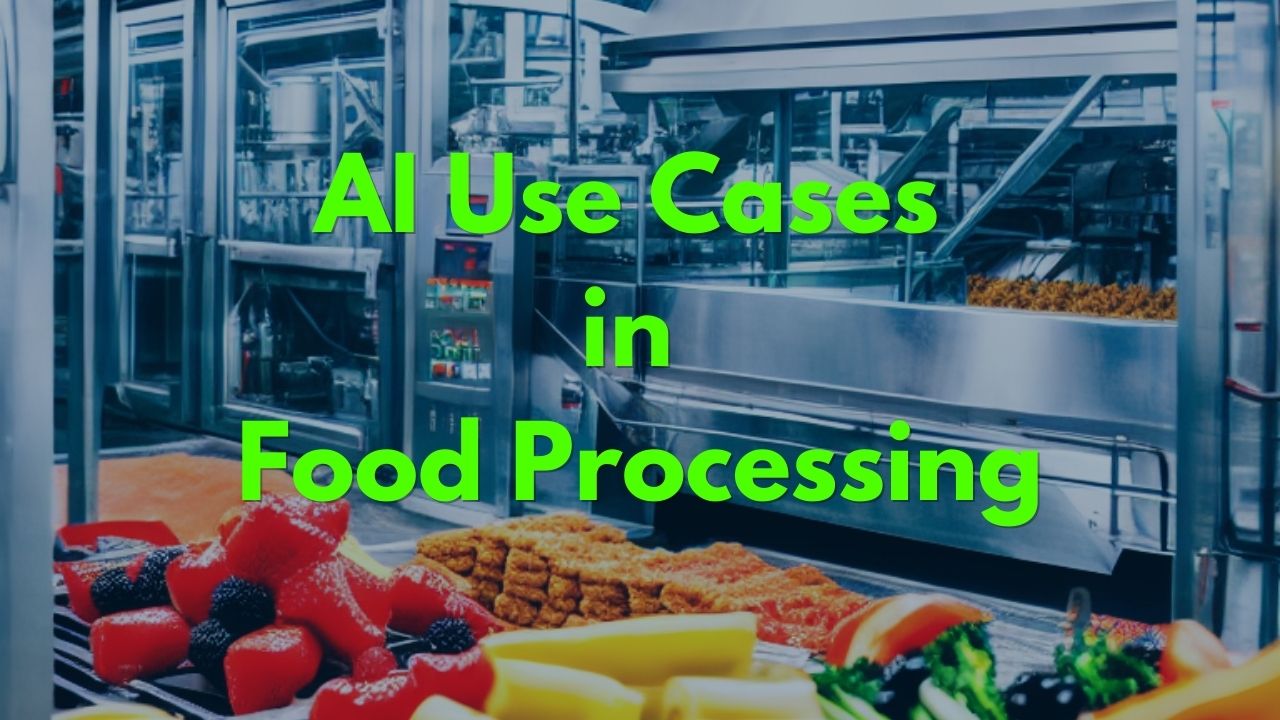
AI Use Cases in Food Processing#
Introduction#
The food processing industry is a vital sector in the global economy, responsible for providing safe and nutritious food to millions of people around the world. Artificial intelligence (AI) is being increasingly used in the food processing industry to improve efficiency, reduce costs, and enhance the quality and safety of food products. From automated sorting and grading of fruits and vegetables to intelligent vending machines, AI is being used in a wide range of applications across the food processing industry.
In this article, we will explore 40 use cases of AI in the food processing industry. We will look at how AI is being used to improve equipment maintenance, enhance food safety, food transportation, perishable inventory management and optimize food production. It will help you understanding how AI is likely to shape the future of food production.
40 Usecases of Food Processing Industry#
Here are 40 use cases of AI in the food processing industry:
- AI-assisted recipe development
- AI-driven food supply chain management
- AI-driven optimization of production processes
- AI-enabled market research and customer insights
- AI-powered demand forecasting
- Automated delivery scheduling
- Automated food freshness detection
- Automated food inspection robots
- Automated food packaging and labeling
- Automated food product recommendation systems
- Automated food quality control and inspection
- Automated food safety testing
- Automated food waste management
- Automated food waste reduction
- Automated green house management
- Automated harvesting and packaging of crops
- Automated ingredient tracking for product traceability
- Automated inspection of food products for contaminants
- Automated inventory management
- Automated labeling and packaging
- Automated meal assembly
- Automated meat and poultry inspection
- Automated meat and seafood processing
- Automated nutrient analysis
- Automated optimization of food production processes
- Automated predictive analytics for food trends
- Automated quality checks for food products
- Automated quality control for processed foods
- Automated recipe and product development
- Automated recipe generation
- Automated risk assessment and compliance monitoring
- Automated shelf-life prediction systems
- Automated sorting and grading of food
- Automated sorting and grading of grain, fruits and vegetables
- Automated stocking and replenishment of warehouse inventory
- Automated warehousing, storage, retrieval and inventory control
- Automated waste management
- Automation of food production processes
- Automation of packaging and labeling jobs
- Temperature monitoring during transportation
Conclusion#
The food processing industry is rapidly embracing AI to improve efficiency, reduce costs, and enhance the quality and safety of food products. From automated sorting and grading to predictive maintenance and inventory management, AI is being used in a wide range of applications across the food processing industry. However, while the benefits of AI are clear, there are also challenges that must be addressed, such as data privacy and security, and ensuring that AI is used ethically. Nevertheless, as technology continues to advance, it is likely that we will see even more use cases of AI in the food processing industry in the future. With the use of AI, the food processing industry can expect to see improved efficiency, better food safety, and reduced costs, which will ultimately benefit both the industry and consumers alike.


Comments: